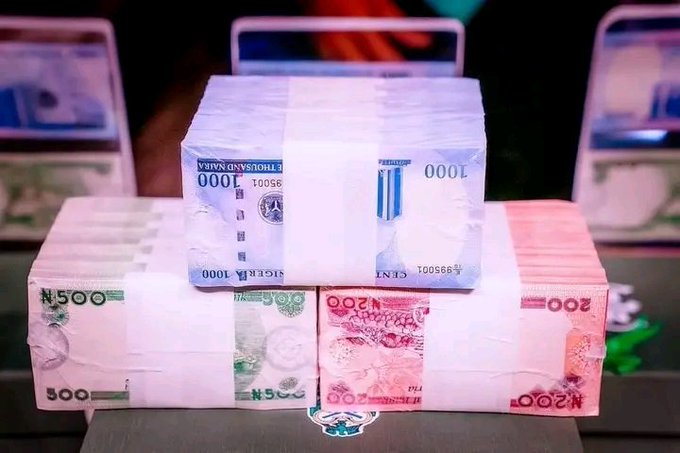The Supreme Court Wednesday morning ordered an immediate suspension of the Central Bank of Nigeria’s policy on new Naira notes.
The apex court’s decision was sequel to a suit instituted by three state governments.
Zamfara, Kogi and Kaduna states had on Monday dragged the Federal Government to court asking the court to stop the implementation of the new Naira policy.
There have been uproar over the new policy.
Justice Okoro of the Supreme Court held that, “An order of Interim Injunction restraining the federal government through the Central Bank of Nigeria (CBN) or the commercial banks from suspending or determining or ending on February 10, 2023, the time frame with which the now older version of the 200, 500 and 1,000 denomination of the naira may no longer be legal tender pending the hearing and determination of their motion on notice for an interlocutory injunction.”
The matter was adjourned to February 15, when the substantive matter comes up for hearing.
In their originating summons, the three states through their Attorneys General, are asking the court to compel the Federal Government, through its agent, the Central Bank of Nigeria to suspend its new naira note policy.
The plaintiffs are asking in their suit, “Whether the demonitization Policy of the Federation viz: the withdrawal of the old N1000, N500 and N200 Bank Notes being carried out by the Federal Government of Nigeria through the Central Bank of Nigeria, under the directive of the President of the Federal Republic of Nigeria is in compliance with the provision of the Constitution of the Federal Republic of Nigeria 1999 (as amended), Central Bank of Nigeria Act, 2007 and the extant laws on the subject?
“Whether the 3-month Notice given by the Federal Government of Nigeria through the Central Bank of Nigeria under the directive of the President of the Federal Republic of Nigeria, the expiration of which the old Bank Notes shall cease to be a legal tender, satisfies the provision of Section 20(3) of the Central Bank of Nigeria Act 2007 which specifies that “Reasonable Notice” be given by the Central Bank before it can call in its banknotes and after which same cease to be legal tender?
READ ALSO:
- Breaking: ICPC Busts Sterling Bank Headquarters, Abuja,Discovers N258m New Notes
- Zenith Bank Workers Asked to Go Home Amidst Cash Crisis
- Amidst Ogun Violence Gov Abiodun Speaks
“Whether the demonitization Policy of the Federation viz: the withdrawal of the old N1000, N500 and N200 Bank Notes being carried out by the Federal Government of Nigeria through the Central Bank of Nigeria, under the directive of the President of the Federal Republic of Nigeria, does not directly interfere with the powers and functions of the Plaintiffs and the welfare of the citizens of the Plaintiffs’ State?
“Whether, in view of Section 20(3) of the Central Bank of Nigeria Act, the Federal Government of Nigeria through the Central Bank of Nigeria under the directive of the President of the Federal Republic of Nigeria have the powers to give a timeline for the redeeming any of its banknotes and the expiration of which timeline entitles the Bank to refuse to redeem same?”
The implication of Wednesday judgment of the supreme court is that Nigerians can still use their old Naira notes pending the determination of the main suits by the apex court.


